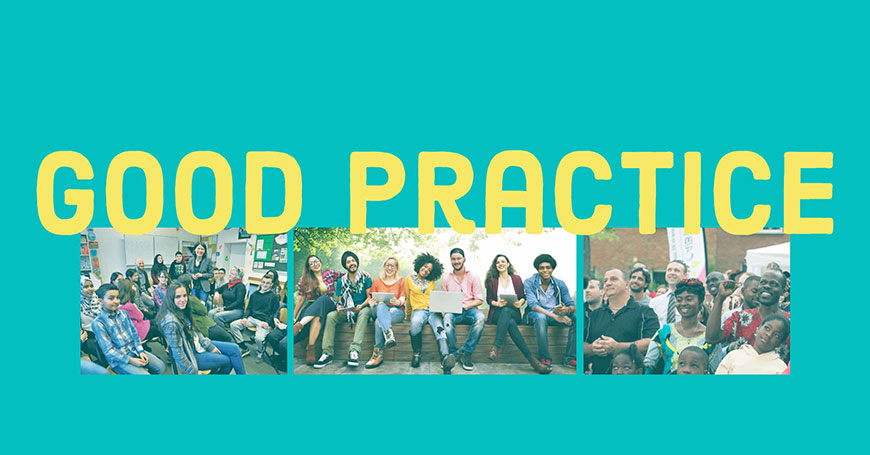Intercultural cities: good practice examples

The first step is the adoption (and implementation) of strategies that facilitate positive intercultural encounters and exchanges, and promote equal and active participation of residents and communities in the development of the city, thus responding to the needs of a diverse population. The Intercultural integration policy model is based on extensive research evidence, on a range of international legal instruments, and on the collective input of the cities member of the Intercultural Cities programme that share their good practice examples on how to better manage diversity, address possible conflicts, and benefit from the diversity advantage.
This section offers examples of intercultural approaches that facilitate the development and implementation of intercultural strategies.
NEUCHÀTOI
A community conducts a dynamic open discussion of its evolving identity Neuchàtoi is an ongoing campaign and dialogue platform to create an open discussion of how the city of Neuchâtel is evolving...
Norwegian Center for Multicultural Value Creation
Purpose: Oslo City Council’s Office for Business Development has taken an active stance on integrating minority businesses through The Norwegian Center for Multicultural Value Creation, which is...
Designing intercultural public space
Purpose: Involving the whole community in shaping the future of Lewisham’s open space. Stimulus/Rationale: In 2006-7 the Borough of Lewisham conducted research into public attitudes. Residents...
LUCIDE
A network of cities seeking to develop ideas about how to manage multilingual citizen communities LUCIDE is a network seeks to develop ideas about how to manage multilingual citizen communities....
The International Cultural Network of Stavanger
Purpose: The International Cultural Network (INK) is an organization running in Stavanger whose main goal is to encourage social cohesion and inclusion. INK was founded in 1982 and now has almost...
“Zambujal Gets Better!” - project
Ethnic mixing and skills development as part of a general rejuvenation of a city district Purpose: The Programme “Zambujal Gets Better” was brought into life in partnership with the Municipality of...
Mångkulturellt Centre, Fittja
A diversity research and popular dissemination centre with local and international scope The Multicultural Centre is a municipal foundation engaged in research, education and cultural activities....
Refugee Welcome and Integration Network
Purpose: On 24 May 2017, the City Council of Cartagena (Murcia - Spain) launched the Refugee Welcome and Integration Network to address the needs of refugees and asylum seekers in the municipality,...
Fargespil (Kaleidoscope)
Purpose: To foster experiences of both alikeness and the richness of diversity by bringing different young actors representing different national music and dance traditions together in a musical...
Italy - Learn Arabic!
Purpose: This is a project in collaboration with the Local Health Authorities to improve linguistic cultural relations between foreign citizens and health services. Stimulus/Rationale: In 2011 the...


